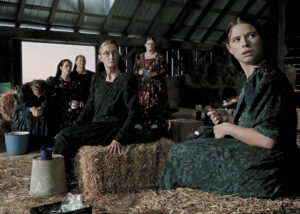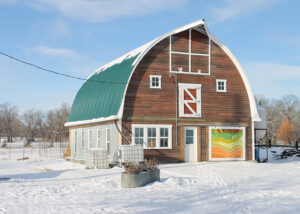In his July 8, 2013 editorial, Dick Benner considers “the trouble with labels.” He says that in our pluralistic society we tend to put people into boxes with a smug “now we know who you are.” This stereotyping, he says, “de-humanizes,” divides and tends to “self-righteousness.”
I found it deeply ironic that the very same issue of Canadian Mennonite features a piece by Will Braun entitled “Ministry in a very different world.” To my mind, it does the very thing Benner spurns. It “boxes” people in, de-humanizes them and makes us northerners seem the more spiritual, intelligent and wise.
The article highlights the return to Canada of Mennonite Central Committee (MCC) workers Dave and Margaret Penner, who gave up their comfortable lives in Winkler, Man., and served among Old Colony Mennonites in Durango, Mexico, for four years. Clearly, they worked hard and creatively, and now deserve a chance to report.
The problem is that Durango is introduced to us as a problem, a “vacuum,” a place “impoverished in every aspect of life.” There is widespread domestic abuse, “stifling status quo,” theological ignorance and weak education. It is a distressing story.
But to my mind, what is especially distressing is that the article puts the Old Colonists in a box. And it raises this question: Why do we not write about Old Colony Mennonites as if they were our friends, our partners in faith, a community we actually want to learn to know? We have learned to write empathetically about other marginalized people by humanizing them. Why can’t we do the same with the approximately 150,000 Old Colonists spread across the Americas?
Why not ask what holds the community together despite the predictions by sociologists and missionaries of impending implosion? Why not ask the Old Colonists to describe their community? Why not read their own historians—Johann Wiebe, Isaak Dyck, Bernard F. Rempel—or listen to the sermons they preach?
Why is it so hard for us northerners to see that, as Anabaptists, they emphasize praxis over words? Every time they refuse a modern fashion, a cool technology, the lure of sports, they know they are being “obedient.”
Sunday schools and Bible studies encourage debate and speculation, simply foreign to an Old Colony mindset. In writing about a place like Durango, why not also highlight its strengths?
- Its completely new ministerial has struggled to heal a community broken by recent deep-searing schism.
- Its cheese factories produce a highly sought-after national commodity.
- Its economic base has been highlighted by Mexican academics.
- Its time-tested institutions—the Flemish inheritance system, fire insurance agency, taxation code, conflict resolution procedures, forgivable loan systems—are undergirded with values of love, care and equality.
Why not ask how it is that most of the Durango Mennonites prefer living in close-knit, rural communities within the pristine landscape of central Mexico, rather than in our more individualistic, dog-eat-dog, urbanized worlds.
Do Durango Mennonites have social problems? During a week-long visit to Durango in 2007 I learned that they did. Just as we have domestic abuse, depression, poverty and spiritual hunger, they have their share. And certainly years of drought have exacerbated their problems. But surely this is not the Old Colony lot alone.
I wish the friendly minister, the engaging cheese factory manager, the lovable elderly couple who I met in 2007 had also been interviewed for this article. I wish it had sought independent analysis by asking other MCC personnel or Mexican officials who know the Durango people.
Ironically, the July 8 issue also features Evelyn Rempel Petkau’s report on the criminal investigation at the Old Order community in Manitoba. To my mind, here is a report infused with empathy, love and sympathy. It calls us to understand this strange and anti-modern people.
Why must we hold the Old Colony people to a different standard than we do the Old Order or Amish? Each of these groups holds sacred their baptismal vows, their commitment to simplicity in Christ. Certainly, they can learn from us, perhaps to forgive less easily and insist on greater accountability. I know I can learn from them, perhaps to consume less and live more humbly.
If we wish to help build capacity, perhaps we can begin by attempting to understand the Old Colonists’ “plain,” “communitarian” and “anti-modern” way-of-life, rather than being perplexed that they do not accept ours.
Royden Loewen is chair in Mennonite Studies at the University of Winnipeg. His book Village Among Nations: ‘Canadian’ Mennonites in a Transnational World, 1916-2006 will be released this fall.







Leave a Reply
You must be logged in to post a comment.